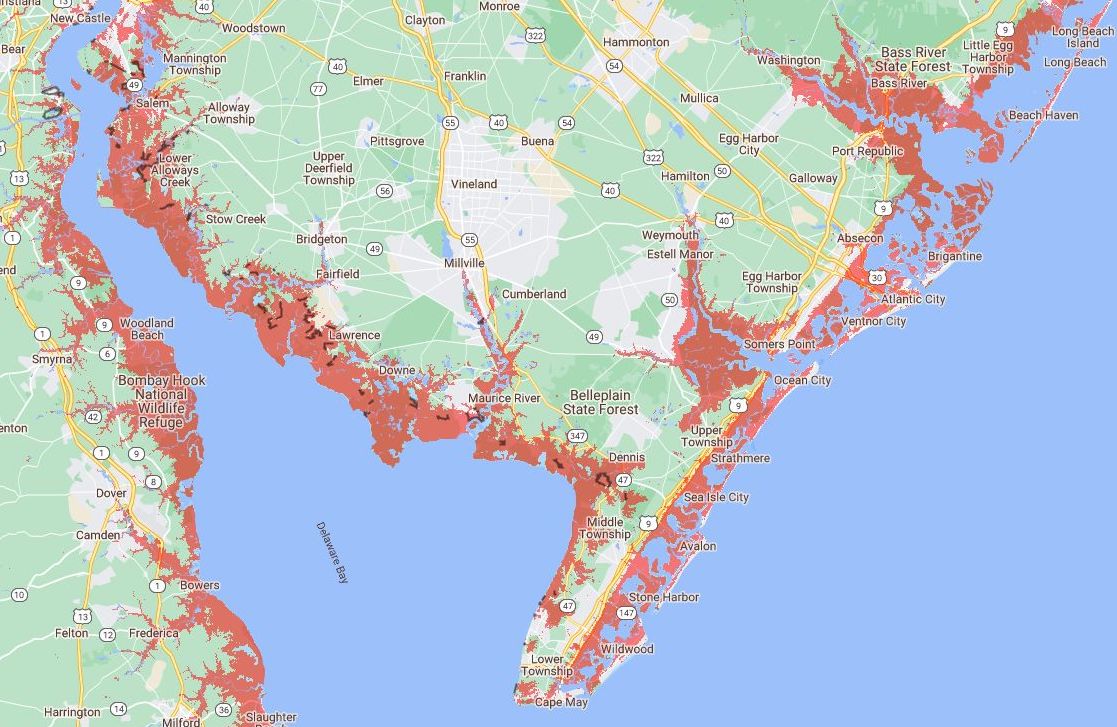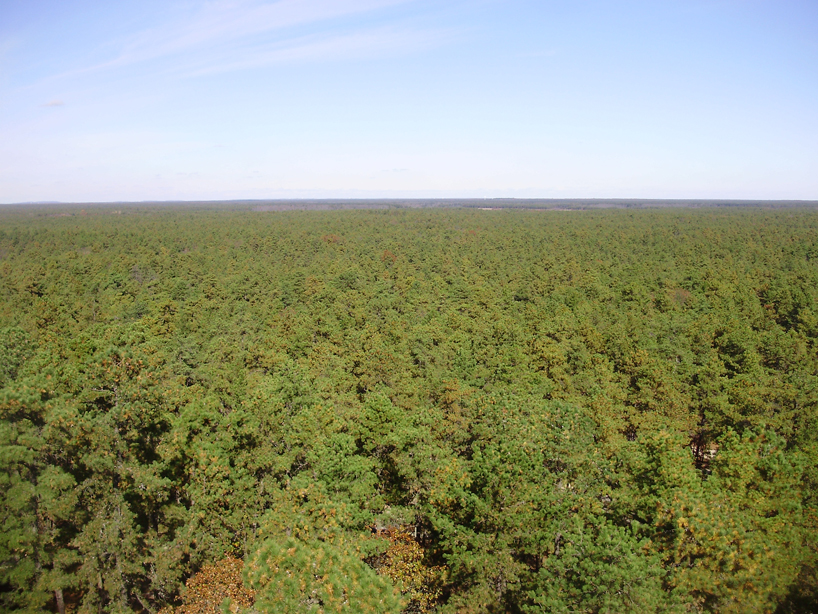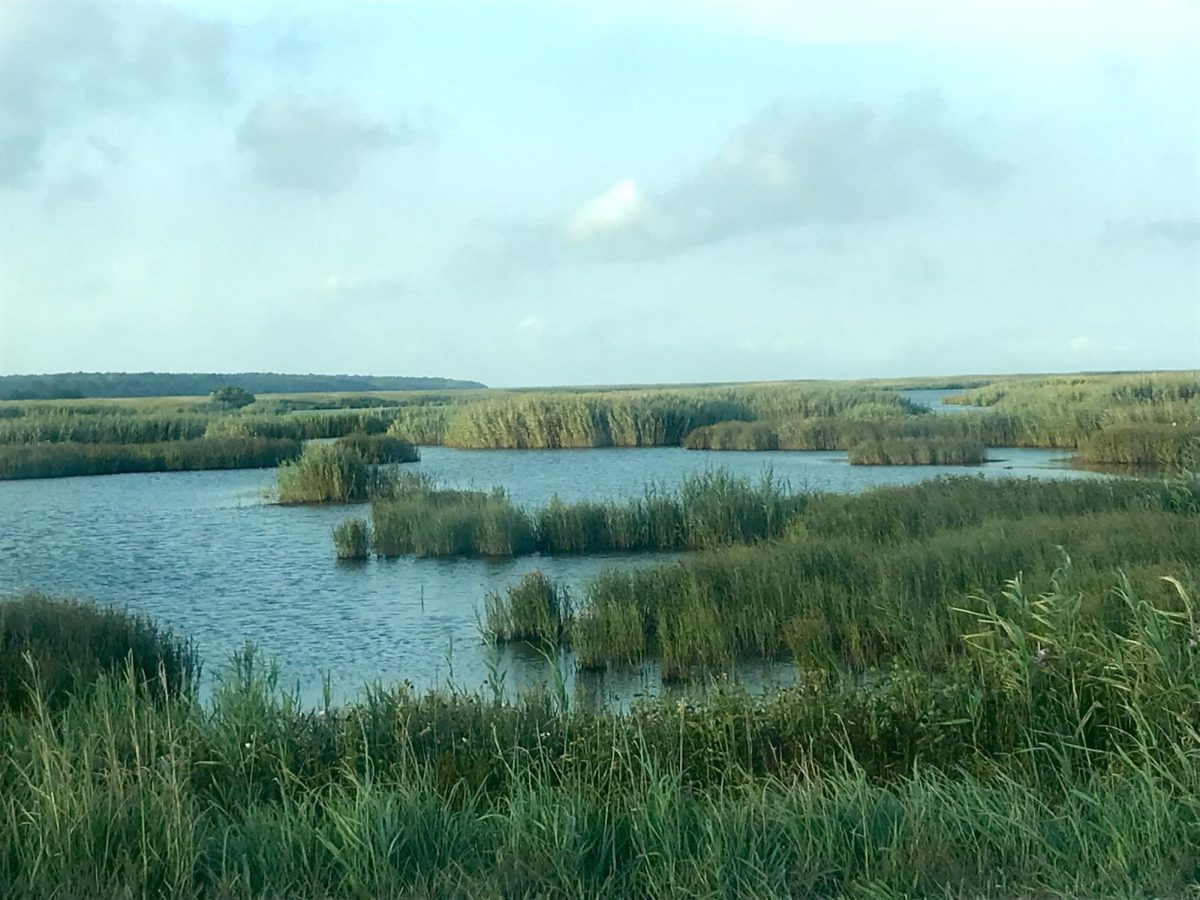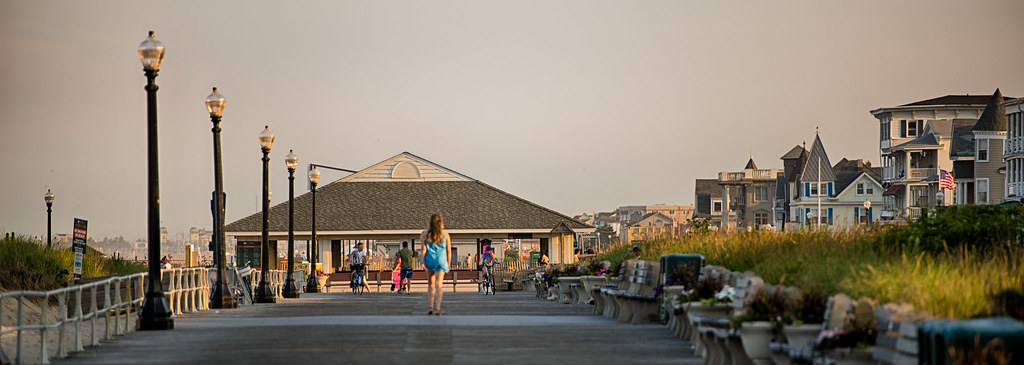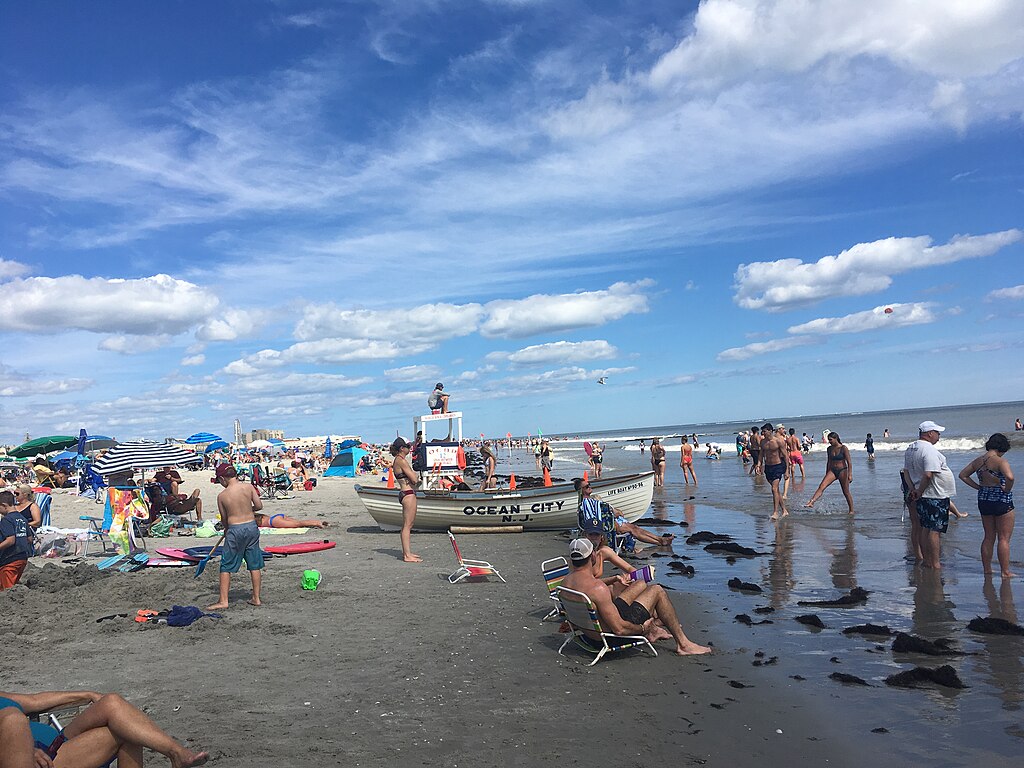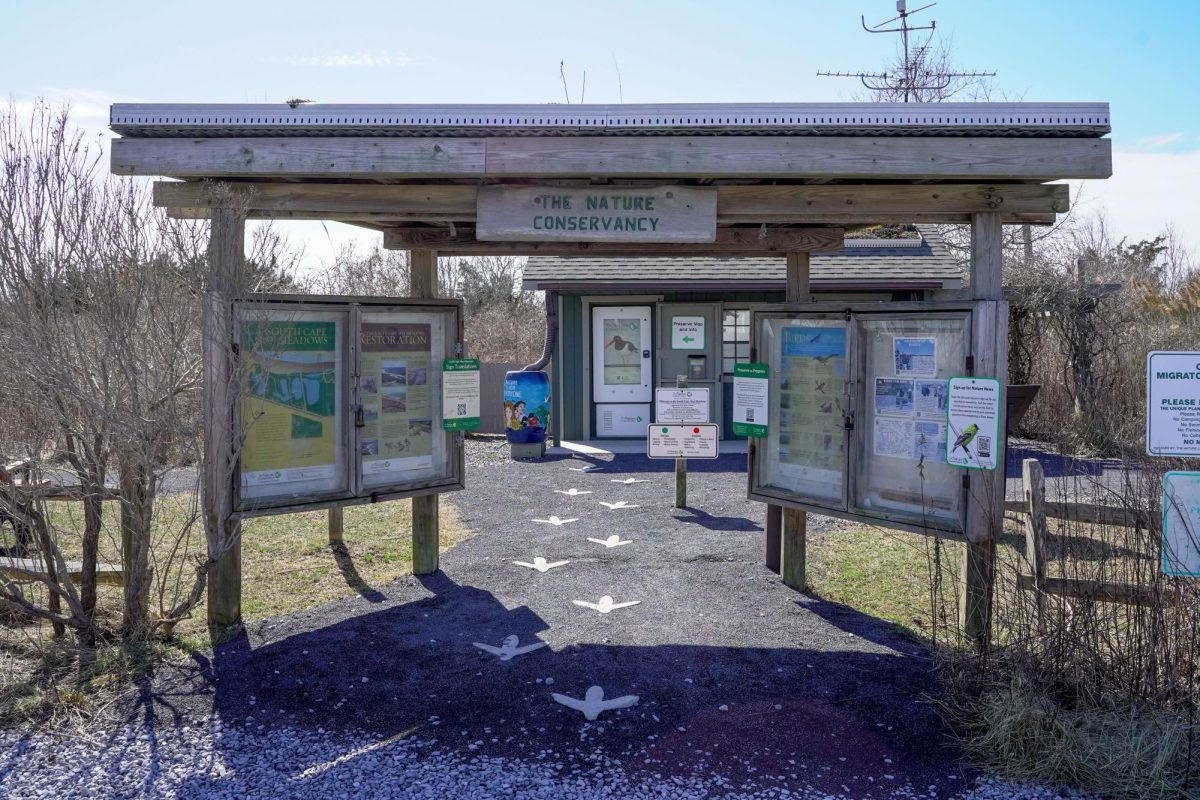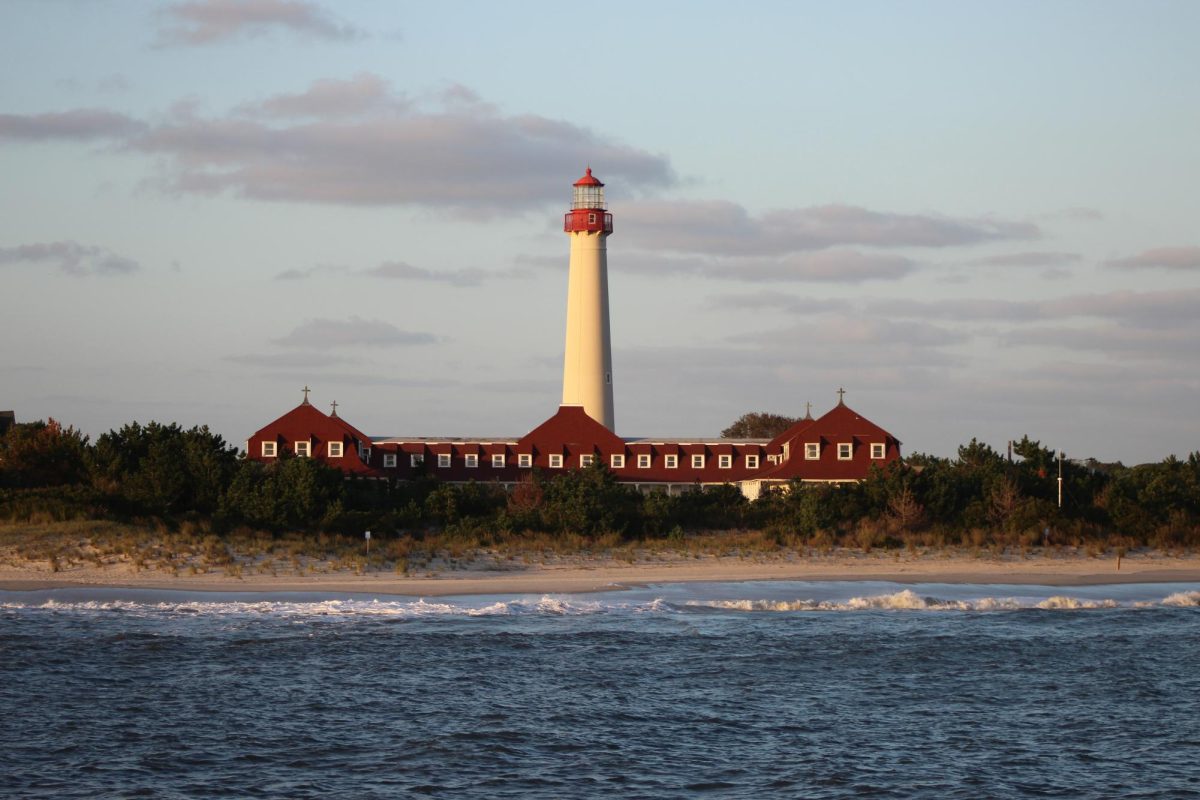Dec. 7, 2022
By 2070, sea levels are expected to rise by nearly four feet and will radically alter the coastal communities of Southern Jersey.
That was the message of Meghan Wren, a climate activist and community planner, who presented a talk entitled “Climate Change Implications in South Jersey: Local Evidence, Predictions, and Actions to Mitigate” at an event hosted by the Harrison Township Historical Society at the Richwood Academy Cultural Center.
Through both scientific data and personal stories, Wren demonstrated how climate change is already having an impact on bay and beachfront areas – and how they must prepare for the future.
“Once [Hurricane] Sandy hit in New Jersey… it switched from being an academic question to a real question,” said Wren.
She highlighted areas in the lower peninsula of New Jersey, where year-around communities like Morris Beach and Thompson Beach no longer exist, and towns like East Point and Fortescue where the population is in steady decline. In these areas, roads frequently flood, fewer people travel to and from the areas, and local businesses lose revenue and are forced to shut down.
Wren, a Cumberland County native and founder of Bayshore Center at Bivalve, shared a photo of a road she uses to commute, which was completely flooded.
“This was my access road to my home up until 2020, and so I became very familiar with sunny day flooding,” said Wren, using a term that describes routine flooding that is caused by sea-level rise rather than storms.
Wren also discussed the effects of algal blooms, in which colonies of water algae grow out of control, increasing temperature and reducing oxygen levels in the ocean, bays and wetlands. This harmful algae kills fish, marine mammals, and birds – and can have a severe impact on communities which depend on fishing, water recreation, and beach tourism.
Since 17 of the 21 counties in the state are coastal, these issues affect the entire state, she noted.
Wren also discussed state legislation and resources to help local municipalities plan for climate-resiliency, including how to alter infrastructure and land use.
“We’ve started planning about what we are going to build where, what we are going to preserve, and how we are going to use the land earlier than some other states,” she said.
As more New Jersey residents begin to be impacted by climate change, Wren believes it will become personal for more people.
“You almost have to have something that impacts you,” she said. “For me, it was [Hurricane] Sandy… After that, I felt like that was my life’s work.”

